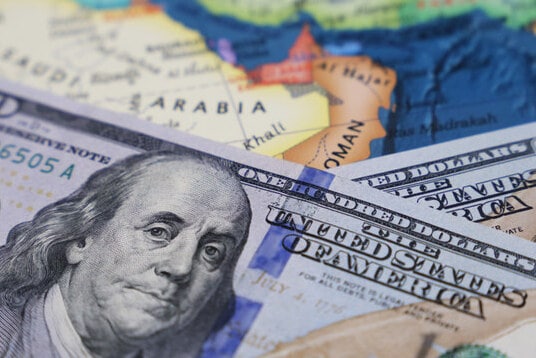Foreign investment in Saudi Arabia increased by 2% to reach $640 billion in 2022.
Foreign investment in Saudi Arabia increased by 2% to reach $640 billion in 2022, according to a new report. The report, which was published on Wednesday, highlights the continued attractiveness of the Saudi Arabian economy to foreign investors, despite the challenges posed by the COVID-19 pandemic and geopolitical tensions in the region.
The report notes that foreign investment in Saudi Arabia has been on an upward trajectory over the past few years, driven by a number of factors, including the country’s economic diversification efforts, its strategic location, and its large domestic market.
One of the key factors driving foreign investment in Saudi Arabia is the country’s economic diversification efforts. The government has been working to reduce its reliance on oil revenues and promote the development of non-oil industries, such as tourism, manufacturing, and technology. This has included the establishment of new economic cities, such as NEOM and the Red Sea Project, which are designed to attract foreign investment and create new job opportunities.
In addition, Saudi Arabia’s strategic location and large domestic market make it an attractive destination for foreign investors. The country is located at the crossroads of Europe, Asia, and Africa, and is home to a population of over 34 million people, with a large and growing middle class.
The report notes that foreign investment in Saudi Arabia is expected to continue to grow over the next few years, driven by a number of factors, including the implementation of structural reforms, the expansion of the non-oil sector, and the development of new infrastructure.
The implementation of structural reforms is expected to have a positive impact on foreign investment in Saudi Arabia. The government has been working to reduce bureaucracy and increase transparency in the business environment, which is likely to make the country more attractive to foreign investors.
The expansion of the non-oil sector is also expected to play a significant role in driving foreign investment in Saudi Arabia. The government has been working to promote the development of non-oil industries, such as tourism, manufacturing, and technology. This has included the establishment of new economic cities, which are designed to attract foreign investment and create new job opportunities.
The development of new infrastructure is also expected to drive foreign investment in Saudi Arabia. The government has been investing heavily in infrastructure projects, such as the construction of new airports and railways, which are likely to attract foreign investment and create new job opportunities. Additionally, the government has recently announced the launch of Vision 2030, an ambitious plan to diversify the economy away from its reliance on oil and create a strong private sector. This initiative is projected to help spur economic growth and attract investment from foreign entities.
Despite the positive outlook for foreign investment in Saudi Arabia, there are a number of risks to the outlook. The ongoing COVID-19 pandemic and geopolitical tensions in the region are likely to have a negative impact on foreign investment in the short term. However, the government’s response to these risks has been strong, and the country’s economic diversification efforts are likely to mitigate some of the risks.
The report notes that the Saudi Arabian government has taken a number of measures to support foreign investors during the COVID-19 pandemic, including the introduction of new regulations to protect investors and the establishment of new funds to support small and medium-sized enterprises.
Overall, the report highlights the continued attractiveness of the Saudi Arabian economy to foreign investors, despite the challenges posed by the COVID-19 pandemic and geopolitical tensions in the region. The country’s economic diversification efforts, strategic location, and large domestic market are likely to continue to drive foreign investment in the coming years. However, the government will need to continue to implement structural reforms and invest in infrastructure to ensure that the country remains an attractive destination for foreign investors.




